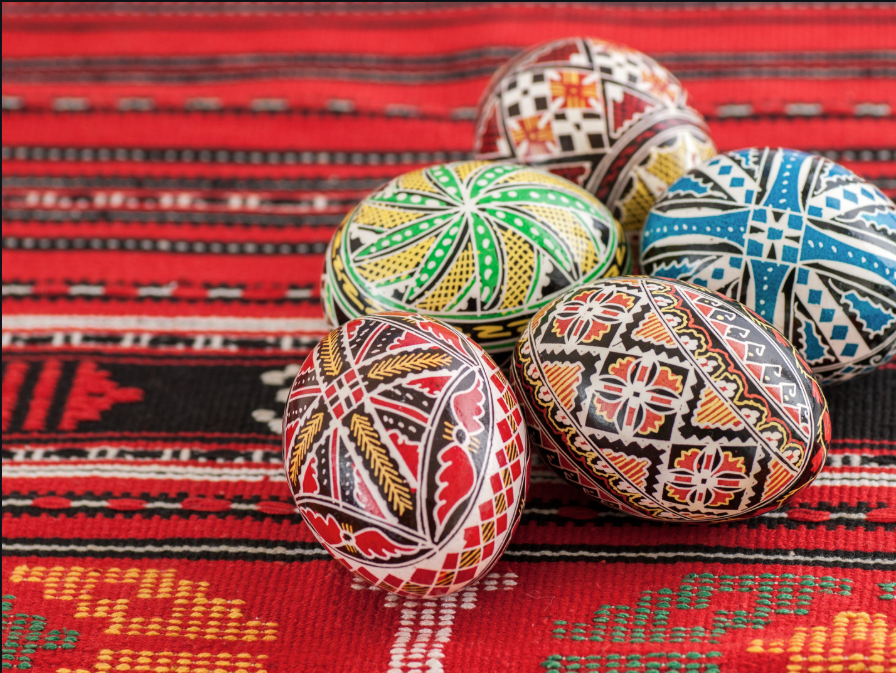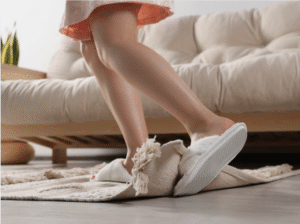Traditional Carpets have been adorning Indian houses for centuries changing rooms with their luxurious designs, intricate textures and symbolic value. These exquisitely woven pieces are more than just floor coverings. They represent generations of skillful craftsmanship along with regional artistic talent and the vibrant heritage of Indian textiles.
The quality of the carpet is crucial when you invest into traditional carpets. The highest quality craftsmanship guarantees longevity that lasts for decades While authentic materials such as silk and pure wool provide luxury and comfort. These intricate techniques of weaving handed down through generations result in pieces that appreciate in value as time passes, making them both art-based and smart investments.
India is the global the center for traditional carpet manufacturing with areas like Kashmir, Rajasthan, and Uttar Pradesh maintaining weaving traditions that go back hundreds of years. The skilled artisans of India especially those weaving with women in the centers for carpet production continue to weave extraordinary pieces that combine heritage with modern-day appeal.
What Makes a Carpet “High-Quality”?
Material Excellence
The base of a truly traditional carpet is the carpet’s materials. Pure wool provides durability and natural stain resistance. This makes it perfect for areas with high traffic. Silk is beautiful and has exquisite detail capabilities, making it ideal for high-end pieces. Cotton makes a fantastic base material that provides durability and affordability, while retaining the quality.
When looking at materials, check the quality of the fiber. Wool that is of the highest quality should feel soft but durable and genuine silk has distinctive sheens that change when you angle it at a light angle. Do not use synthetic mixtures as they can compromise the durability of wool and its authentic appearance.
Weaving Techniques That Define Quality
The hand-knotted carpets are the highest level of traditional workmanship. Each knot is hand-tied by skilled craftsmen, creating strong, durable flooring that will last for generations. Hand-tufted options offer high-quality for less money but they don’t have the long-term durability of hand-knotted items.
Carpets manufactured by machine, though less expensive, are not able to match the quality and durability of hand-crafted alternatives. The slight imperfections in handmade carpets actually improve their appearance and authenticity.
Understanding Knot Density
Knot density, measured as knots per square inch(KPI), directly influences the quality and value. Higher density creates finer detail and greater durability. Carpets of the traditional type typically have 400-200 knots for every square inch. However, luxurious silk carpets can exceed 600 knots per square inch.
Check the back of the carpet to determine knot stability and the tightness. Secure knots that are even and secure suggest skilled workmanship and can predict long-term durability.
Popular Types of Traditional Carpets in India
Kashmiri Carpets
The carpets made by Kashmir’s wool and silk are adorned with intricate Mughal-inspired patterns such as paisleys, florals and geometric designs. These carpets often include the rich jewel tones of gold accents to create beautiful focal points in any space.
Jaipur Dhurries
Dhurries that are flat-woven from Rajasthan feature striking geometric patterns and vivid colors. These versatile pieces can be used in both contemporary and traditional environments, and offer durability as well as simple maintenance.
Bhadohi Carpets
Also known in India as the “Carpet City,” Bhadohi creates hand-knotted carpets that are exported of high-end quality and known for their workmanship and design innovations. These carpets combine traditional techniques with contemporary design.
Persian-Style Carpets
Indian weaver have perfected Persian carpeting techniques, making carpets with floral designs that flow and vibrant color palettes that match those of Middle Eastern counterparts.
Tribal and Regional Rugs
Different states have their own distinct weaving styles, ranging including Gujarat’s mirror-work motifs to Odisha’s tribal designs, all being a reflection of the local culture and tradition.
Top Cities and Hubs for Buying High-Quality Traditional Carpets
Srinagar, Kashmir
The origin of India’s finest silk carpets Srinagar provides direct entry to artisans’ workshops with authentic and original pieces. Visit during the tourist season to get the finest range and the most competitive prices.
Jaipur, Rajasthan
The capital city of Rajasthan offers easy access to wool rugs, as well as royal-pattern carpets. The numerous showrooms in the city and government stores guarantee authentic purchases.
Bhadohi, Uttar Pradesh
This carpet-making hub creates exceptional high-end pieces that are exported. Direct purchases from manufacturers provide an enormous value and authenticity guarantee.
Panipat, Haryana
Popular for its budget-friendly handlooms, Panipat offers good quality carpets with competitive prices which makes it a favorite among those who want to save money.
Best Online Stores for Traditional Carpets
1. The Ambiente
This atelier of premium carpets in Delhi incorporates traditional techniques with contemporary design. It was founded in the year 2000 by Avani Khandelwal and supported by over 30 years of experience through the Bhadohi Carpets, the parent company. Bhadohi Carpets, The Ambiente has provided over 5000 customers across the world. Their handmade silk and wool rugs help more than 4,000 women weaving, who are committed to sustainable livelihoods while providing exceptional quality.
2. Jaipur Rugs
The artisan-first business focuses on ethical sourcing as well as global appeal. Their close relationships with weavers guarantee fair compensation and the highest standards of quality.
3. Obeetee
Incorporating the best of both worlds in modern storytelling, Obeetee offers premium traditional carpets that are modern in their design. Their long-standing reputation is backed by years of high-quality service.
4. Bhadohi Carpets
Specialising in designer-quality and bespoke traditional rugs this website caters to the most discerning clients looking for unique items.
5. Kashmir Box
The company offers authentic Kashmiri workmanship directly by artisans. This website guarantees authentic pieces that are authentic origins that have been verified.
6. FabIndia
Traditional, affordable and easily accessible choices, FabIndia makes quality carpets accessible to larger audiences, while assisting artisan communities.
Offline Markets Worth Visiting
Delhi Haat, Delhi
This cooperative of artisans features state-conscious stalls with real regional carpets. State supervision ensures fair pricing and the highest quality standards.
Rajasthan Emporium
The government-run stores in different cities offer authentic prices and guarantee authenticity for the traditional Rajasthani carpets.
Cottage Industries Emporium
These stores are government-certified and operate across India and offer authentic traditional carpets from a variety of regions.
Tips to Identify Authentic High-Quality Carpets
Ask for certificates of authenticity from sellers. Look over the carpet’s back to find even knots and tight weave. Be cautious of synthetic imitations–authentic pieces feel different and age better.
Ask sellers for information about weaving techniques, origins, and time of production. Professionally trained sellers are a sign of genuine businesses that sell high-quality products.
Price Guide: What to Expect
Beginning wool carpets are priced between Rs5,000 and $15,000 offering excellent quality for buyers with limited budgets. Hand-knotted carpets in the mid-range cost between Rs20,000 and Rs50,000 that offer excellent craftsmanship and sturdiness. Silk carpets of the highest quality start at around Rs60,000 and exceed several lakhs, indicating high-end investment pieces.
Frequently Asked Questions
Are carpets made by hand better than machines-made carpets?
Sure, handmade carpets provide superior durability, distinctive character, and superior longevity. While machine-made options cost less, handmade pieces provide better long-term value.
What can I do to determine whether the Kashmiri carpet is authentic?
Genuine Kashmiri carpets are silk-colored with highlights, intricate designs and authentic the certificates of origin. The reverse should display even knots that are tight and genuine carpets are distinct from imitations.
Do I have the ability to customize the look of a carpet that is traditional on the internet?
A number of top retailers, such as The Ambiente and Bhadohi Carpets provide bespoke services. Customization generally will require longer lead times and more cost, but guarantees an exact fit and design.
Do these carpets are easy to clean?
Carpets of the past need regularly vacuuming and occasionally professionally-supervised cleaning. Good quality pieces will are able to age gracefully if properly cared for and develop a beautiful patina as time passes.
What is the ideal carpet material to last for a long time?
Pure wool is the ideal combination of comfort, durability and value. Silk offers luxury and quality however it requires a more meticulous maintenance. Cotton is an excellent base fabric in mixed pieces.
Preserving Heritage Through Thoughtful Purchases
Making the investment in quality traditional carpets is more than decorating your home, it preserves culture while helping artisans and communities. When shopping online, whether through established websites like The Ambiente or going to traditional markets, you should be focusing on transparency as well as authenticity and ethical source.
Traditional carpets of high quality are long-term investments that appreciate in value, while delivering daily elegance and relaxation. When you select authentic carpets from reliable sources, you help in conserving India’s rich weaving heritage while enriching areas of living with timeless style.





